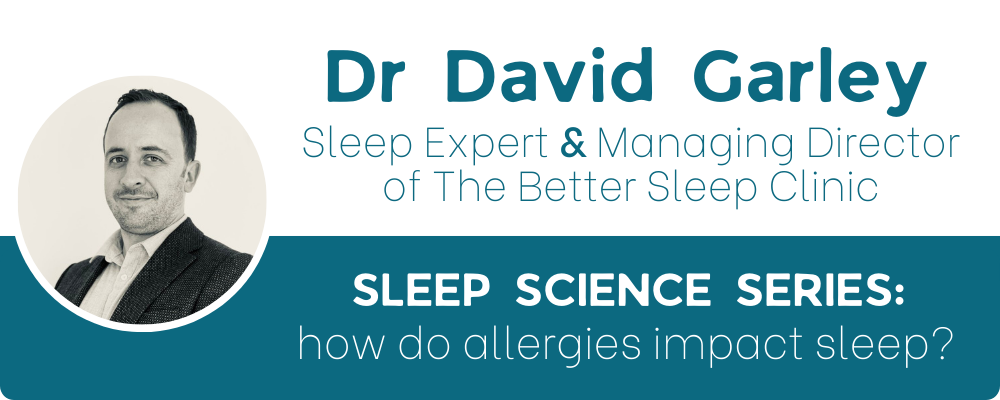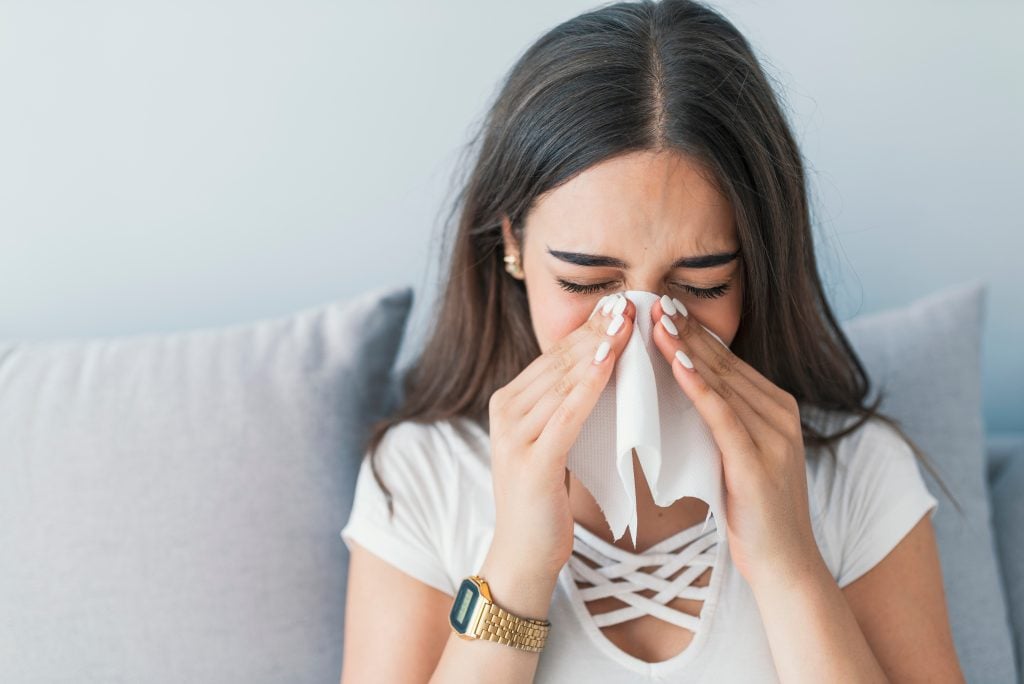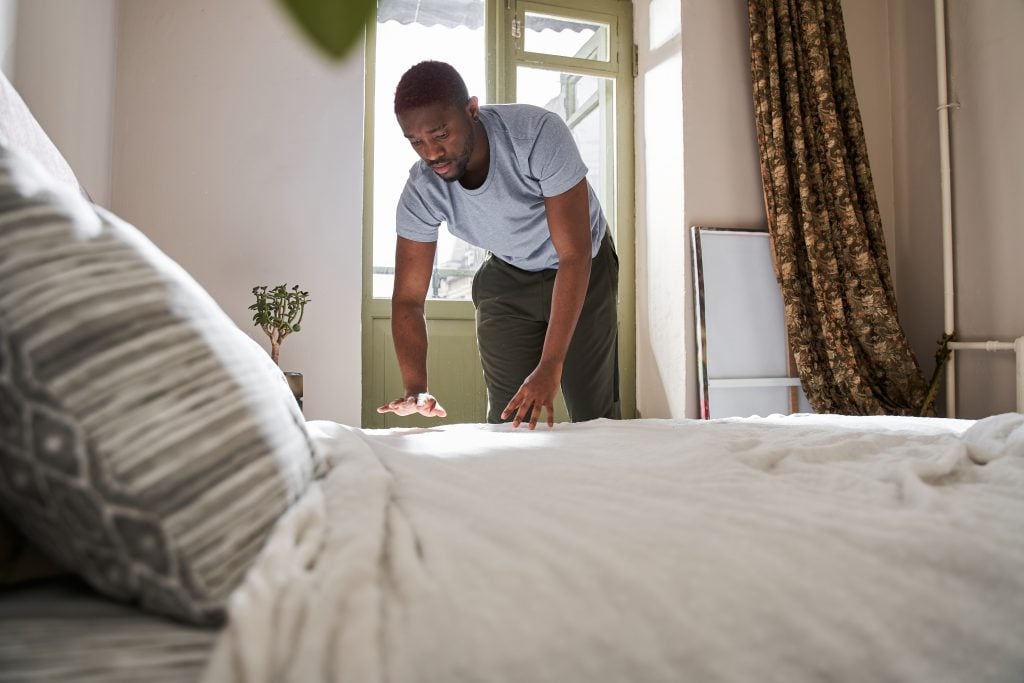
Allergies often impact sleep quality and quantity, however this isn’t to say there aren’t ways in which you can overcome or combat allergies. In this blog, we discuss the common allergens, how they impact sleep and the actions you can take to improve your night’s rest for a sustained period.
Allergic reactions occur when the body mounts an immune response against a day-to-day or non-harmful substance known as an allergen.
Allergens vary from foods such as peanuts and shellfish to specific medications, animals and plant products like pollen. Possible allergic reactions exist in the form of mild itchy skin and runny noses to more severe life-threatening anaphylaxis. Certain conditions like asthma often have an allergic component for some people.
There are a few usual suspects when it comes to allergies. Many people find themselves allergic to pollen, which usually causes mild eye itchiness, a runny nose or sneezing, which we call hay fever. Another common allergy is house dust mites; these pests are found in all houses but are more prominent in houses that are particularly dusty.

There are several ways that allergies can negatively impact the quality of your sleep. Firstly, a runny or bunged-up nose due to an allergy can cause discomfort whilst sleeping. Moreover, sitting up to blow your nose throughout the night will make dropping off more difficult.
A nose or upper airway allergy, referred to as rhinitis, can cause slight swelling. This swelling narrows the airway and can cause the airflow to be more turbulent as you breathe, causing the airway to vibrate and potentially result in snoring. Therefore, snoring can be much worse if you suffer from hay fever and is more likely to disrupt your partner’s sleep than your own.
Another condition associated with snoring is obstructive sleep apnea (OSA). Your airway naturally narrows slightly as you fall asleep, and sometimes, it narrows so much it closes completely. This means your body has to repeatedly wake you up so your airway opens and you can breathe again, which leads to very fragmented and poor-quality sleep. If your airway is slightly swollen due to allergy, it can cause OSA or worsen the impacts.
The bed is another reason allergies impact sleep. House dust mites, in particular, can collect in soft furnishings and be challenging to remove. Pollen and animal dander can also collect in the bed; as you lie asleep for what could be more than eight hours, you’re prone to inhaling these allergens.
The impact of allergies varies from person to person. For those severely affected, you can take comfort in knowing there are actions you can take to manage your allergies and improve your sleep.
Allergen avoidance is a key principle, and below, we outline some simple yet effective ways to reduce the possibility of allergies.
Keeping the window closed on high pollen count days can prevent pollen from entering the home.
Allbeit easier said than done, stopping pets from entering the bedroom and sleeping on the bed can eliminate the build-up of animal dander.
Keeping the bedroom clean, tidy, and dust-free can make a significant difference. This is made much simpler by having fewer soft furnishings, as pollens, animal dander and especially house dust mites are all quite challenging to remove from such items.
Replacing or washing your bedding more frequently can also pave the way for a better night’s rest; for example, washing the bedclothes more regularly can reduce the build-up of allergens. Moreover, some mattresses feature closed-cell surfaces that prevent house dust mites from getting inside and building up, especially if they have synthetic fillings. There are also hypoallergenic mattress protectors that can be removed and washed.

Speaking to your GP about your allergy symptoms is always sensible, as other medical treatments are available to help you. It can be difficult always to avoid allergies; similarly, you may find that after taking the above allergen avoidance measure, you still have a few symptoms persisting. Treatments are available to help reduce some of your body’s immune reaction to the allergen and settle down your symptoms. These can involve tablets, creams and nasal sprays.
If you think you have asthma, you should always talk to your GP. Furthermore, if you snore and are conscious of pauses in your breathing, make sure you speak to your GP or a sleep doctor to investigate possible OSA. For further information or to book a consultation or assessment, visit www.thebettersleepclinic.co.uk or www.theinsomniacentre.co.uk.
